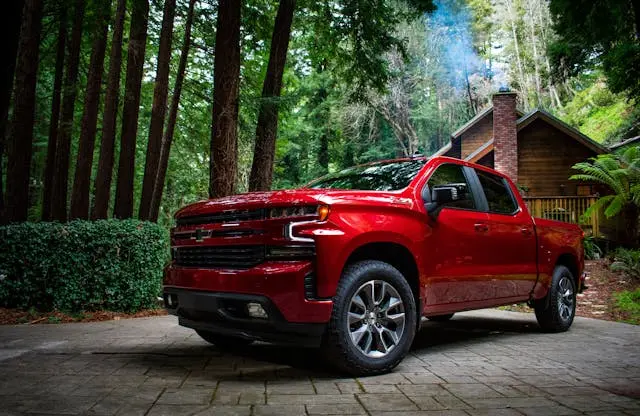As the automotive industry undergoes a seismic shift towards electrification, connectivity, and automation, Hyundai is at the forefront of this transformation. With a commitment to innovation and sustainability, the company is actively reshaping the future of mobility. This article explores how Hyundai is driving innovation and leading the charge towards a more sustainable and technologically advanced transportation ecosystem.
Electrification: Pioneering the Electric Vehicle Revolution
Hyundai has made significant strides in the electrification of its vehicle lineup, launching a range of electric and hybrid models that cater to diverse consumer needs. The introduction of the Hyundai Ioniq series and the Kona Electric showcases the brand's commitment to reducing carbon emissions while providing eco-friendly alternatives to traditional gasoline-powered vehicles.
The Ioniq 5, with its futuristic design and advanced EV technology, exemplifies Hyundai's vision for electric mobility. With a dedicated Electric-Global Modular Platform (E-GMP), the Ioniq 5 offers rapid charging capabilities, extended range, and spacious interiors, thus redefining the electric vehicle experience. Hyundai’s ambitious goals include achieving carbon neutrality by 2045, and the company is investing heavily in battery technology and infrastructure to support this vision.
Smart Mobility Solutions: Embracing Connectivity
In an era where connectivity defines consumer expectations, Hyundai is integrating smart mobility solutions into its vehicles. The company’s focus on connected car technology ensures that drivers can enjoy seamless integration with their digital lives. Features such as Hyundai's Bluelink connected services allow users to remotely control various aspects of their vehicles, including climate settings and navigation, enhancing convenience and safety.
Moreover, Hyundai is exploring the potential of Vehicle-to-Everything (V2X) technology, which enables communication between vehicles, infrastructure, and pedestrians. This innovation is aimed at reducing traffic congestion, improving road safety, and ultimately creating a more efficient urban mobility environment. By harnessing the power of data and connectivity, Hyundai is not just manufacturing cars; it is creating a holistic mobility ecosystem.
Autonomous Driving: Leading the Charge Towards Self-Driving Vehicles
Hyundai is also heavily invested in the development of autonomous driving technology. The company's partnership with companies like Aptiv has accelerated the testing and deployment of self-driving vehicles, aiming to bring safe and reliable autonomous driving solutions to market. Hyundai's commitment to innovation in this space is evident in its advanced driver-assistance systems (ADAS), which enhance safety and driving comfort.
The company’s vision for autonomous mobility encompasses a range of applications, from personal vehicles to public transport solutions. By leveraging artificial intelligence and machine learning, Hyundai is working towards creating vehicles that can navigate complex environments and respond to various driving scenarios in real-time. This innovation not only aims to enhance the driving experience but also to reduce accidents and improve overall road safety.
Sustainability: A Core Principle of Hyundai's Innovation Strategy
Sustainability is at the heart of Hyundai's innovation strategy. The company recognizes the urgent need to address climate change and is actively working towards reducing its environmental footprint. Hyundai’s commitment to sustainability goes beyond just producing electric vehicles; it encompasses efficient manufacturing processes, renewable energy usage, and sustainable materials.
Hyundai’s investment in hydrogen fuel cell technology represents another facet of its dedication to sustainable mobility. The Hyundai NEXO is a prime example of the company’s efforts in this area, providing a zero-emission alternative that combines the benefits of electric mobility with the convenience of rapid refueling. As part of its long-term vision, Hyundai aims to become a leader in hydrogen technology, promoting it as a viable solution for both transportation and energy generation.
Global Collaborations: Advancing Mobility through Partnerships
Recognizing that collaboration is key to driving innovation, Hyundai has formed strategic partnerships with various technology companies and research institutions. These collaborations are essential for accelerating the development of new technologies and expanding the company’s capabilities in areas such as artificial intelligence, robotics, and smart city initiatives.
One notable partnership is with Uber, focusing on the development of air mobility solutions. By exploring the potential of urban air transportation, Hyundai aims to create new avenues for mobility that alleviate congestion in busy urban environments. This forward-thinking approach underscores Hyundai's commitment to not only enhancing its vehicle offerings but also revolutionizing how people move within and between cities.
Conclusion: A Bold Vision for the Future of Mobility
Hyundai's dedication to innovation is reshaping the future of mobility in profound ways. Through electrification, connectivity, autonomous driving, and sustainability, the company is not merely adapting to changes in the automotive landscape but actively driving them. As it continues to invest in cutting-edge technologies and forge strategic partnerships, Hyundai is poised to play a pivotal role in creating a more sustainable, efficient, and connected world of transportation.
As consumers increasingly seek out environmentally friendly and technologically advanced vehicles, Hyundai's forward-thinking approach positions it as a leader in the automotive industry. The company's vision for the future of mobility is not just about cars; it’s about creating a comprehensive ecosystem that enhances the quality of life for individuals and communities around the globe.






